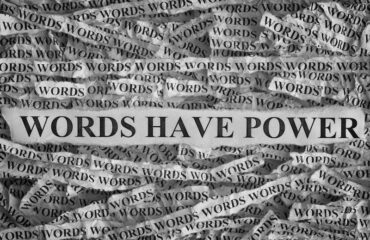The national average for people with alcohol use disorders is 1:10. According to Law.com, for lawyers, it’s 1:3. Alcoholism in the legal profession is a significant issue. Fully one third of the profession is struggling with alcoholism. How can that be? What makes lawyers vulnerable to alcoholism? And what is the profession doing about it?

Sober as a Judge
According to “English Language & Usage Stack Exchange,” the phrase “sober as a judge” first appeared in the play The Injured Princess by T. D’Urfey in 1682. It doesn’t necessary comment on the number of alcoholic drinks a judge may have had but, rather, refers to jurists being formal, somber or stuffy. At the other end of the spectrum was the phrase, “Drunk as a lord.” Nowadays you could substitute “lawyer” for “lord.”
The “Lawyer’s Curse”
The traits that make good lawyers – high achievers, “Type A” personality, perfectionist, analytical, self-reliant – are traits that are over-represented in the treatment and recovery community, according to Rebecca A. Stanwyck, LCSW, BCD.
In 2014, the ABA Commission on Lawyer Assistance Programs and the Hazelden Betty Ford Foundation embarked on a major research project to survey 15,000 lawyers and determine current rates of substance abuse, depression and anxiety. They found addiction rates to be about twice that of the general population (20 percent). Other mental health concerns showed 28 percent of attorneys struggle with depression, 19 percent experience anxiety, and 11.5 percent have reported suicidal thoughts.

A survey of lawyers in recovery, I Could No Longer Live with Myself’: Lawyers Reveal Their Struggles with Alcohol, asked why they thought alcoholism in the legal profession was so high. They said:
- “The unrealistic expectations of perfection and an inability to show weakness or admit that you are struggling; the stigma attached to seeking help.” Angelina, 36
- “A recipe for disaster awaits those who cannot achieve a [work-life] balance and compartmentalize the steady flow of conflict that is certain to come any lawyer’s way.” Jude, 35
- “The stress level and pressure level encourages us to seek relief in a bottle. Also, as problem-solvers we are much more prone to stay in denial that we have a problem because we think we can do it ourselves—i.e., our big egos.” Tom, 75
Denial – Not Just a River in Egypt
Robin M. Belleau of the Illinois Lawyers’ Assistance Program, says, “Because lawyers often see themselves as problem solvers — fixing clients’ problems — they sometimes have a hard time seeing their own issues.”
There is much popular talk about “denial” but this inability to see one’s own problems can have a neurological basis. It’s called “anosognosia” and is often seen in disorders such as schizophrenia. It’s a lack of insight that makes it impossible to understand one’s own mental illness. This explains why most people who get into recovery do so after the intervention, formal or not, of friends, family or colleagues.

The Basis for Attorney Discipline
When lawyers stop taking calls, start missing deadlines and fear opening their mail, it is time for real concern. Substance abuse plays a role in 40 percent to 70 percent of all disciplinary proceedings and malpractice actions against lawyers, according to Patrick R. Krill, director of the Betty Ford Foundation’s legal professionals program. Many other cases involve other mental health issues for the lawyer. If the attorney goes to a lawyer’s assistance program, it may not have to report a lawyer’s misconduct to the state disciplinary agency when the lawyer is seeking help through the program. Thus, early intervention can have great payoffs for the attorney and the public. Several programs have law practice management advisers on staff to help lawyers keep up with their work.
What Can You Do?
Every single one of us in the profession knows of a lawyer or judge who is in trouble because of alcohol or other drugs. It may be the partner who misses a lot of Mondays and Fridays; it could be the judge who does a better job before her lunch break. Whoever is suffering with addictions can be helped by your intervention. Know that help is available and that the sooner someone intervenes, the sooner that person can begin to live comfortably again. For help, see:
Resources
- The American Bar Association Commission on Lawyer Assistance Programs
- State-by-State Directory of Lawyer Assistance Programs
- National Helpline for Judges Helping Judges 800-219-6474
Get more articles like this
in your inbox
Subscribe to our mailing list and get the latest information and updates to your email inbox.
Thank you for subscribing.
Something went wrong.







This is very interesting, I would like to see more articles like this.